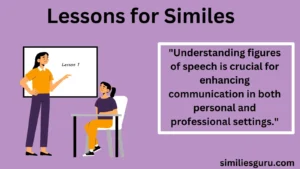Loss is an inevitable part of the human experience, and finding the right words to express it can be challenging. Whether you’re consoling a friend, writing a condolence message, or reflecting on your own grief, similes can provide a powerful way to convey emotions. Similes compare one thing to another, often using “like” or “as,” to create vivid imagery and evoke deeper understanding. In this article, we’ll explore over 25 similes for loss, offering polite, professional, and casual alternatives to express grief. We’ll also provide examples, discuss tone nuances, and guide you on choosing the best simile for any situation.
Why Similes Matter in Expressing Loss
Similes are more than just literary devices—they are tools for connection. When words fail, similes can bridge the gap between raw emotion and understanding. They help us articulate the inarticulable, making grief feel less isolating. By comparing loss to something familiar, similes allow us to process complex emotions and share them with others.
25+ Similes for Loss
Here’s a curated list of similes that capture the essence of loss in various tones and contexts:
Polite and Professional Similes
- Like a shadow that lingers long after the sun has set.
- As silent as an empty room.
- Like a book with missing pages.
- As heavy as a stone in the heart.
- Like a melody that fades too soon.
- As vast as an ocean without a shore.
- Like a candle extinguished in the wind.
- As hollow as an echo in a canyon.
- Like a tree stripped of its leaves.
- As cold as a winter without end.
Casual and Relatable Similes
- Like a puzzle with a missing piece.
- As jarring as a phone call in the middle of the night.
- Like a song stuck on repeat.
- As empty as a coffee cup on a Monday morning.
- Like a favorite sweater with a hole in it.
- As disorienting as waking up from a vivid dream.
- Like a photo that’s faded over time.
- As quiet as a library after closing.
- Like a road with no destination.
- As fleeting as a shooting star.
Poetic and Reflective Similes
- Like a flame that flickers and dies.
- As deep as the roots of an ancient tree.
- Like a river that flows into the unknown.
- As inevitable as the setting sun.
- Like a feather carried away by the wind.
- As timeless as the stars in the night sky.
- Like a bridge that leads to nowhere.
- As profound as the silence after a storm.
Choosing the Right Simile for the Situation
The tone and context of your message will determine which simile is most appropriate. Here’s a quick guide:
- Formal Settings: Opt for polished and universal similes, such as “Like a shadow that lingers long after the sun has set.” These are ideal for condolence letters or professional communications.
- Casual Conversations: Use relatable and everyday comparisons, like “Like a puzzle with a missing piece.” These work well when comforting friends or family.
- Personal Reflection: Choose poetic and evocative similes, such as “Like a river that flows into the unknown,” for journaling or creative writing.
7 Texting Examples for Expressing Loss
Here are seven user-friendly texting examples that incorporate similes for loss. These are optimized for readability and emotional impact:
- “I’m so sorry for your loss. It’s like a shadow that lingers long after the sun has set, but I hope you find light in the memories you shared.”
- “Losing someone is like a book with missing pages—it feels incomplete, but the story still matters. Thinking of you.”
- “I can’t imagine how you’re feeling. It’s like a melody that fades too soon, but the music stays with us forever.”
- “Grief is as heavy as a stone in the heart, but you don’t have to carry it alone. I’m here for you.”
- “It’s like a puzzle with a missing piece—nothing feels the same, but we’ll keep searching for meaning together.”
- “Loss is as jarring as a phone call in the middle of the night. I’m here if you need to talk.”
- “It’s like a candle extinguished in the wind, but the warmth it brought will always remain. Sending you love.”
The Nuances of Tone in Expressing Loss
When using similes to express loss, tone is everything. Here’s how to tailor your message:
- Empathy: Use gentle and comforting language to show you care.
- Respect: Avoid overly casual similes in formal settings.
- Hope: Pair your simile with a message of support or optimism.
For example, instead of saying, “It’s like a road with no destination,” you could say, “It’s like a road with no destination, but I’ll walk it with you.”
Conclusion
Loss is a universal experience, but how we express it can make all the difference. Similes offer a unique way to articulate grief, providing comfort and connection in difficult times. Whether you’re writing a heartfelt message, offering condolences, or reflecting on your own emotions, these 25+ similes for loss can help you find the right words.
Remember, the best simile is one that resonates with both you and the person you’re addressing. By choosing the right tone and context, you can create a message that is both meaningful and memorable.



